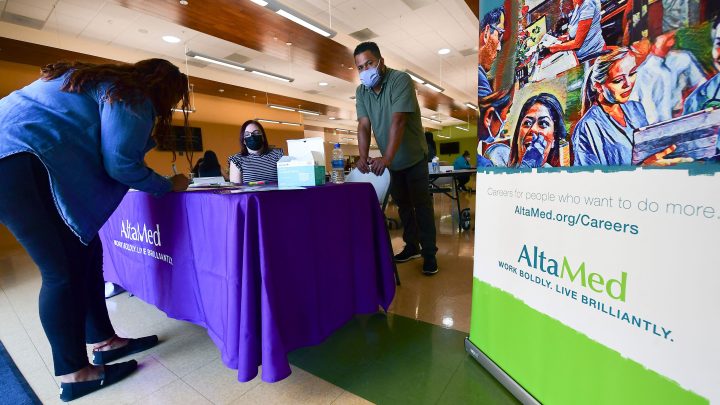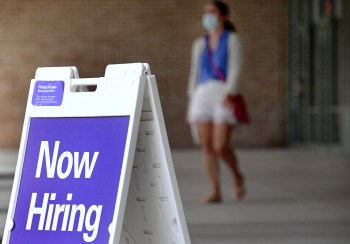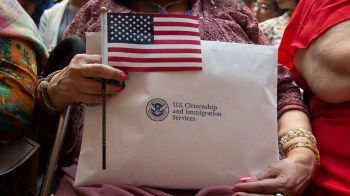
Immigration has returned to pre-pandemic numbers. How does that affect the economy?
Immigration has returned to pre-pandemic numbers. How does that affect the economy?

A main reason we see so much labor tightness these days has to do with demographics — retiring baby boomers and not enough of their kids or grandkids to take their place in the labor force. That’s why it’s really been immigration that’s helped replenish the labor supply.
As census data show immigration levels returning to pre-pandemic levels, what does that means for the U.S. economy?
If you look at the last 120 years or so, the rate of U.S. population growth has had its ups and downs, says Brookings Institution demographer William Frey.
“Close to 1%, at sometimes even 2% a year. The 2% was during the baby boom years, the 1950s,” he said.
During the pandemic, that number dipped to a low point — just 0.16%. And the Census projects stagnant growth in the U.S.-born population in the coming decades.
“What are we going to do with so few people and maybe a decline in our labor force population? That’s the issue now,” said Frey. “And that’s where immigration comes in.”
Immigration is what drove the population growth to inch back to pre-pandemic levels in 2023, to 0.5%. But why do we need the population to grow anyhow? It has to do with maintaining a healthy balance between workers and retirees, says University of California, Davis economist Giovanni Peri.
“So a big imbalance there will generate more burden and cost per worker to support a retired person,” he said.
And retirees have money to spend on things like hospitality and health care, but those sectors need more workers. So if 500,000 people retire every year, an inflow of the 500,000 immigrants per year will just keep the labor force where it is, Peri said.
“Really, the economy — [the] American economy — will have to absorb the shrinkage if there is nobody who comes,” he said.
Immigration stabilizes the economy, said Peri, and can keep employers from having to compete for workers by increasing wages.
“What most businesses do sometimes is they will move those extra costs to the consumer, and that creates inflation,” said University of Texas at El Paso economist José Bucheli.
He said the U.S. economy would benefit from policies like increasing caps on work visas.
There’s a lot happening in the world. Through it all, Marketplace is here for you.
You rely on Marketplace to break down the world’s events and tell you how it affects you in a fact-based, approachable way. We rely on your financial support to keep making that possible.
Your donation today powers the independent journalism that you rely on. For just $5/month, you can help sustain Marketplace so we can keep reporting on the things that matter to you.

















